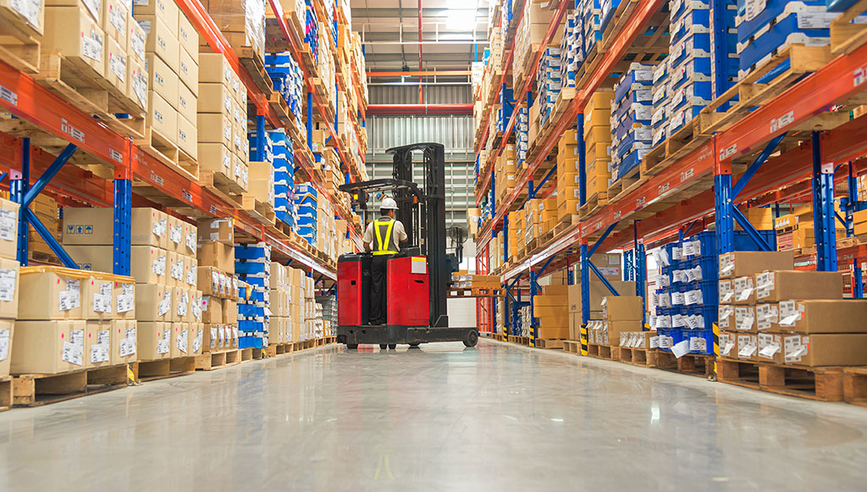6 Risk Management Considerations for Wholesalers and Distributors


From protecting property and inventory to safeguarding employees and business vehicles, wholesalers and distributors face many risks that could disrupt their operations and the flow of goods to customers. Here are six key considerations for managing the ever-growing risks facing the industry:
1. Property and inventory loss

Because wholesalers rely on the use of warehouses and other facilities, their operations can be susceptible to damage and loss from fire and smoke, water, catastrophes and severe weather. If the majority of inventory is stored at a single location and that location experiences a loss, the ability to conduct business could be disrupted. Having a formal property loss prevention plan and business continuity plan in place before an event happens can help to maximize the chance your business can recover and minimize the loss of property, assets and inventory.
2. Employee injuries

The constant movement of products throughout the delivery cycle – whether loading/unloading merchandise or stocking the shelves – can lead to increased risk of employee injury. Repetitive motions associated with order picking, loading and delivery job tasks can lead to musculoskeletal disorders (MSDs). Forklifts and other mobile equipment can cause injury to nearby personnel. Slippery surfaces and uneven walkways have the potential to cause a slip, trip or fall exposure, which is a leading cause of injuries for employees. The risk of injuries related to these hazards can be potentially minimized with ergonomics services, safety training and routine maintenance and inspection of the premises.
3. Safety on the road

Hiring qualified and safe drivers, especially in a tightened labor market, is a challenge. A shortage of qualified drivers underscores the importance of selecting candidates with the right experience. Knowing what to look for when hiring safe drivers is a key element of a company’s fleet safety program. A formal fleet safety program establishes policies and procedures to help maintain a safe work environment for employees and can help protect against liability from vehicle accidents. Travelers transportation specialists can help customers manage vehicle exposures and assist with the development of fleet safety programs.
4. Products liability

Wholesalers and distributors need to be aware of the risks of the products they sell and the quality of the manufacturers providing them to protect their businesses from potential liability claims. Consider the following to minimize the exposures you may be assuming in the event of a products liability claim:
- Ensure that the terms and conditions in supplier contracts and agreements are approved by legal counsel and properly executed to avoid assuming others' liabilities for which you should not be held responsible.
- Contractually require manufacturers and suppliers to include you as an “Additional Insured” on their General Liability policy, which may provide you with additional protection should you be named in a product liability claim.
- Obtain Certificates of Insurance (COI) from your manufacturers and suppliers to ensure that they have added you as an Additional Insured and have appropriate insurance coverage in the event of a product liability claim.
Having proof of your efforts to control the quality and viability of the products you sell is the best way to protect your business.
5. Cyber threats

Cyber criminals can cause major disruptions for wholesalers and distributers by holding up supply chain distribution with ransomware or stealing information with phishing scams that target the digital information of your company.1 The ramifications range from financial and operational to damaging your company’s reputation. Wholesalers and distributors should engage qualified cyber professionals to help protect against a data breach by establishing segmented architecture, multifactor authentication, secure data transmission, software patch updates, vendor portal oversight and other necessary controls.
6. Supply chain challenges

Challenging events in recent years have exposed supply chain risks all over the world. Bottlenecks from shipping delays to materials shortages have impacted operations and the ability to fulfill orders. Countering these risks may mean being prepared with alternatives to moving product through your pipeline, conducting a thorough review of your suppliers and increasing management oversight.
Travelers offers its customers innovative risk management services and products. With one of the largest Risk Control departments in the industry, our scale enables the right resourcing at the right time to meet customer needs. For over 110 years, our loss prevention professionals have assisted agents, brokers and customers across the country and around the world.
To learn more about the coverages and services available for wholesalers and distributors, contact your insurance agent.
Sources
1https://www.supplychainquarterly.com/articles/7239-the-rising-risk-of-cybercrime-in-the-supply-chain



